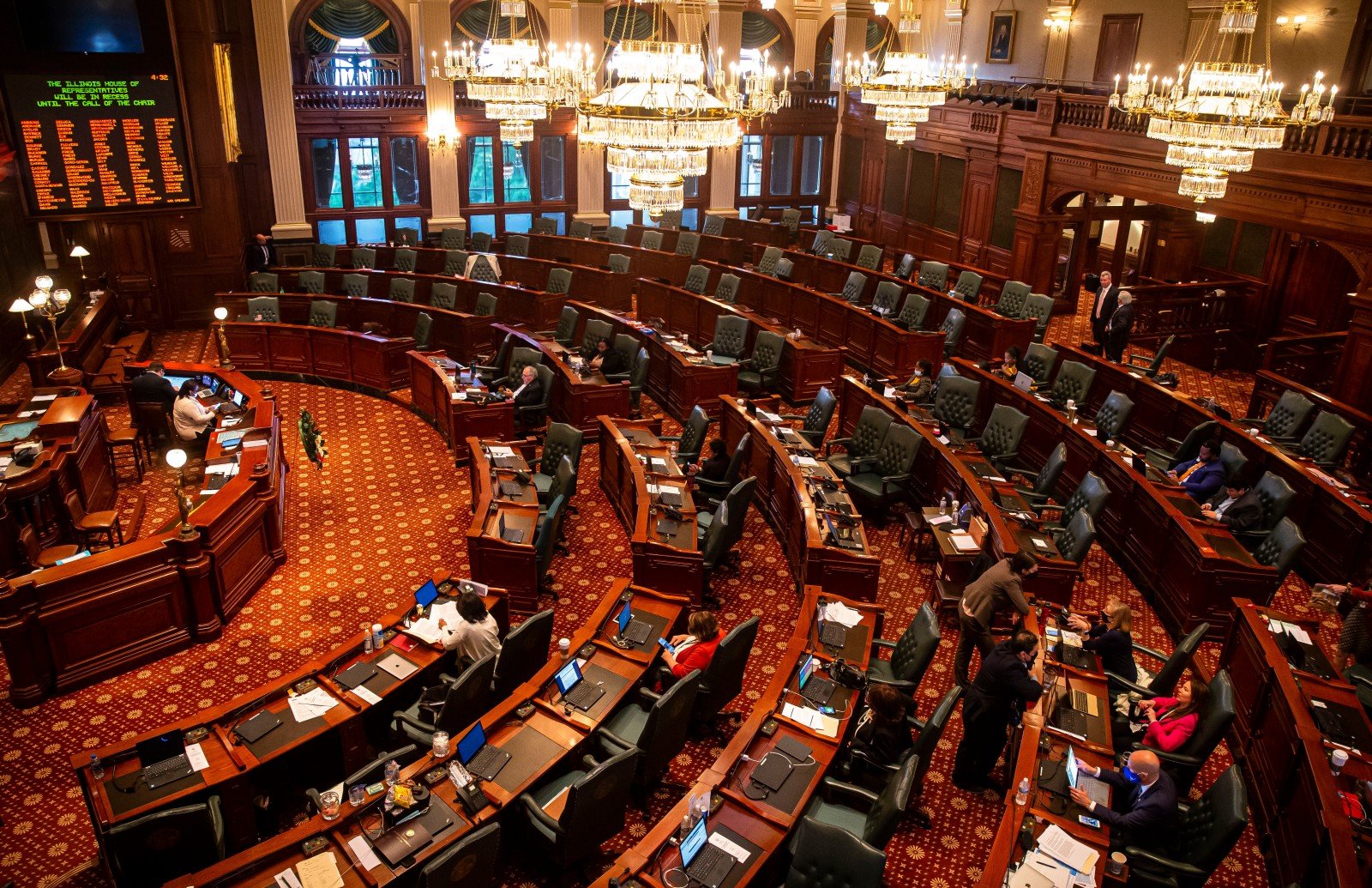Health Insurance Reforms Aim to Lower Premiums
Gov. JB Pritzker talks with members of the Illinois House prior to a vote on his initiative to reform the state’s insurance industry. Capitol News Illinois photo by Jerry Nowicki
The Landscape of Health Insurance Reform
The Biden administration has introduced several reforms aimed at reducing health insurance premiums and expanding access to affordable healthcare. These measures, part of broader legislative efforts such as the Inflation Reduction Act and the American Rescue Plan, are designed to alleviate financial burdens on Americans and ensure more people have access to necessary medical care.
Key Reforms and Their Impact
1. Expansion of Subsidies: The Inflation Reduction Act extended enhanced financial help for purchasing health insurance through HealthCare.gov and state-based Marketplaces. This extension helps maintain lower premiums for millions of Americans. In 2021, these subsidies saved consumers an average of $800 annually on premiums, and these savings are set to continue through 2025 (CMS.gov) (The White House).
2. Medicare Enhancements: Significant changes to Medicare are also part of the reforms. Starting in 2024, individuals with high prescription drug costs will no longer have to pay cost-sharing once they reach the catastrophic coverage phase. By 2025, Medicare will cap out-of-pocket prescription drug costs at $2,000 annually, and beneficiaries will have the option to spread these costs over monthly payments. Additionally, Medicare will now negotiate drug prices directly with manufacturers, which is expected to lower prices for many high-cost drugs (The White House) (CMS.gov).
3. Marketplace and Medicaid Adjustments: The administration is focused on closing the Medicaid coverage gap in states that have not expanded Medicaid under the Affordable Care Act. Furthermore, the reforms aim to make premium tax credits permanent, preventing potential spikes in health insurance costs starting in the fall of 2025 (The White House) (Home).
4. Addressing Discriminatory Practices: New policies are being implemented to ensure that health insurance plans do not discriminate based on age, health condition, or other protected characteristics. These policies include standardized plan options to simplify consumer choices and ensure more comprehensive coverage for essential health benefits (HHS.gov).
Benefits for Consumers
These reforms are expected to significantly reduce the number of uninsured Americans. Enhanced subsidies and expanded eligibility are projected to lower premiums by about 18% for many enrollees. Additionally, the focus on preventing exorbitant drug price increases and negotiating costs directly with pharmaceutical companies is anticipated to save both individuals and the federal government substantial amounts of money (The White House) (Home).
By continuing to implement these reforms and pushing for further legislative support, the Biden administration aims to provide more Americans with affordable, high-quality health coverage, thereby improving overall public health and financial stability for millions.
For more detailed information, you can explore resources from The White House, CMS, and the Commonwealth Fund.
The floor of the Illinois House of Representatives at the Illinois State Capitol in Springfield, Ill. on May 31, 2021. Justin L. Fowler / The State Journal-Register via Associated Press
"For far too long, insurance companies, and not doctors, have been free to determine what treatment options patients should have and how quickly they can receive it," Pritzker emphasized during the announcement.
Expert Opinions
Health policy experts agree that these reforms could lead to significant savings for consumers. Gideon Lukens from the Center on Budget and Policy Priorities highlighted that these changes will especially benefit low-income individuals by extending subsidies and reducing out-of-pocket costs.
"This legislation takes crucial steps to reduce the financial burden of healthcare on families," noted Lukens.
How Will It Affect You?
Lower Premiums
For many, these reforms will mean lower monthly premiums and reduced out-of-pocket expenses. The bill includes provisions to cap costs and extend financial assistance to more people.
Improved Access to Care
By requiring insurers to follow accepted standards of care and eliminating step therapy, patients will have faster access to the treatments their doctors recommend without jumping through hoops.
Medicare Coverage
Learn about different parts of Medicare and how to enroll to ensure you have the necessary health coverage.
Read MoreHow Do Subsidies and Tax Credits Work?
Understand how subsidies and tax credits can make health insurance more affordable for you.
Read MorePenalties for Not Having Health Insurance
Learn about the penalties associated with not having health insurance and how to avoid them.
Read MoreKey Enrollment Periods for Health Coverage
Understand the key enrollment periods for health coverage and when you can enroll in or change your plan.
Read MoreCalculate Your Life Insurance Needs
Use our calculator to estimate the amount of life insurance you need to protect your family's future.
Calculate Now

